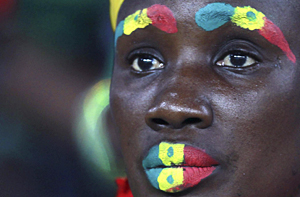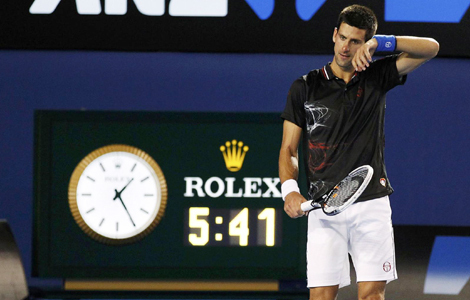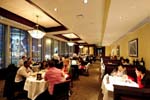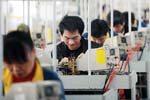Travelers get urge to splurge
Updated: 2012-02-03 09:39
By Wang Wen (China Daily)
|
|||||||||||
Shops overseas attracting mainland visitors with lower prices: Survey
BEIJING - Chinese consumers were big buyers of luxury goods worldwide during the recent Spring Festival holiday, an industry report showed.
|
 |
|
Mainland tourists queuing at a luxury store in Hong Kong. According to the World Luxury Association, Europe, North America and Hong Kong, Macao and Taiwan were the main destinations for Chinese mainland shoppers during the Lunar New Year holiday. [Photo/China Daily] |
Chinese tourists' spending on luxury goods overseas reached $7.2 billion in January, driven by holiday trips during the Spring Festival holiday that began on Jan 23, the World Luxury Association said in a report on Wednesday.
The figure was a record for Chinese residents buying luxury goods overseas, and was 15 percent higher than the association's pre-holiday forecast, the report said.
Lower prices overseas were the key attraction, with about 72 percent of those surveyed citing that factor, said Ouyang Kun, chief executive officer of the association's China office.
The report said that Europe, North America, Hong Kong, Macao and Taiwan were the main destinations of these shoppers.
Chinese consumers contributed as much as 62 percent of the total sales in Europe's luxury market during the festival, the association found.
Total sales of luxury goods in the Chinese mainland in January totaled only $1.75 billion, less than one-fourth of the amount spent overseas, according to the association's report.
The growth rate for luxury goods sales overseas will exceed that of domestic sales in 2012, lifted by a stronger yuan and increased overseas travel, according to consultancy, Bain & Co China Inc.
It's common for overseas luxury sales to get a boost with big Chinese holidays such as the Lunar New Year or National Day, when long vacations make foreign travel easier. But the boom in overseas sales was at the expense of the domestic market, some business insiders said.
"Our revenue is much less than that of the shopping malls in Hong Kong during the holidays, although similar brands are available," said Kuang Zhenxing, vice-president of Beijing Modern Plaza, which features high-end brands including luxury brands.
Kuang said the rush of consumers to overseas stores during the holidays made it tough to further develop the domestic luxury market.
However, other experts noted that, regardless of what happened overseas, China's luxury market is still growing fast.
"The surge is just during the holidays and it doesn't represent the whole market," said Zhou Ting, executive director of the Research Center for Luxury Goods and Services at the University of International Business and Economics.
The overseas sales boom during holidays reflected the rise in foreign tourism, and the group of consumers buying luxury goods abroad weren't the core consumers for the segment, she said. These travelers only bought luxury goods "incidentally" during their holidays and don't have a fixed consumption of such items.
From a long-term perspective, Chinese residents consume almost the same share of luxury goods in the mainland, the West and Hong Kong and Macao, Zhou added.
"The only thing we can say is that the Chinese have already become the main driver of the worldwide luxury market's development, especially with the West mired in a financial crisis," she said.








